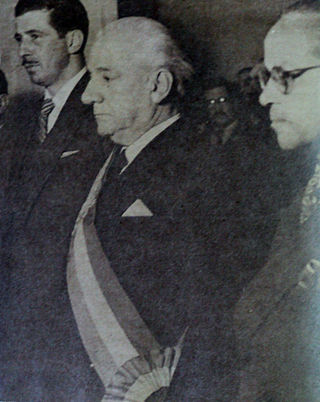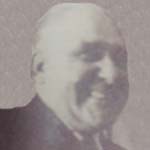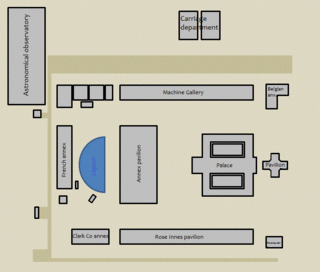This article needs additional citations for verification .(February 2022) |
| |||||
| Decades: | |||||
|---|---|---|---|---|---|
| See also: | |||||
The following lists events that happened during 1942 in Chile.
This article needs additional citations for verification .(February 2022) |
| |||||
| Decades: | |||||
|---|---|---|---|---|---|
| See also: | |||||
The following lists events that happened during 1942 in Chile.
This section needs additional citations for verification .(October 2022) |

Santiago, also known as Santiago de Chile, is the capital and largest city of Chile and one of the largest cities in the Americas. It is located in the country's central valley and is the center of the Santiago Metropolitan Region, which has a population of seven million, representing 40% of Chile's total population. Most of the city is situated between 500–650 m (1,640–2,133 ft) above sea level.

Juan Antonio Ríos Morales was a Chilean political figure who served as president of Chile from 1942 to 1946, during the height of World War II. He died in office.

Pedro Abelino Aguirre Cerda was a Chilean political figure, educator, and lawyer who served as the 22nd president of Chile from 1938 until his death in 1941. A member of the Radical Party since 1906, he was chosen by the left-wing Popular Front coalition as its candidate for the 1938 presidential election and won. He had previously served as deputy for San Felipe, Putaendo and Los Andes from 1915 to 1918, Minister of the Interior from January to September 1918 under president Juan Luis Sanfuentes, deputy for Santiago from 1918 to 1921, Minister of Justice and Public Instruction from 1920 to 1921 under president Arturo Alessandri, and senator for Concepción from 1921 to 1927. He died two years and eleven months into his presidency on November 25, 1941, at the age of 62, from tuberculosis.
Chile has two distinct electoral division systems:

Juan Antonio Iribarren Cabezas was a Chilean politician. He was president of Chile from 17 October to 3 November 1946.

Alfredo Duhalde Vásquez was a Chilean politician who served twice as provisional president in 1946.
In Chile, the National Prize for Literature(Premio Nacional de Literatura) was created by Law No. 7,368 during the presidency of Juan Antonio Ríos on 8 November 1942. It consists of a lump-sum monetary prize and a lifetime monthly stipend. It was originally awarded every year until the amendments introduced by Law No. 17,595 of 1972, when it became biennial. It's regarded as one of the National Prizes in their homeland.

Silvia Ofelia Urbina Pinto was a Chilean singer, folklorist and teacher. Urbina had a vast trajectory in the investigation, research and dissemination of Chilean folk music. She was one of the founders of the Cuncumén folkloric group and later creator of the children's musical folkloric group, Cuncumenitos.

The history of Pichilemu began around the 16th century, when Promaucaes inhabited the modern Pichilemu region. According to Chilean historiographer José Toribio Medina on his book Los Restos Indígenas de Pichilemu (1908), Spanish conqueror Pedro de Valdivia gave Topocalma encomienda, in which Pichilemu was supposed to be, to Juan Gómez de Almagro, on January 24, 1544.

Pedro Francisco Lira Rencoret was a Chilean painter and art critic, who organized exhibitions that led to the establishment of the Chilean National Museum of Fine Arts. He is best known for his eclectic portraits of women.
The following lists events that happened during 1943 in Chile.
The following lists events that happened during 1945 in Chile.
The following lists events that happened during 1949 in Chile.
The following lists events that happened during 1972 in Chile.
The following lists events that happened during 1975 in Chile.
The following lists events that happened during 1979 in Chile.

The Chilean International Exhibition was a world's fair held in Quinta Normal Park, Santiago, between 16 September 1875 and 16 January 1876 to show Chilean people recent technological and scientific advances.
The National Prize for Humanities and Social Sciences was created in Chile in 1992 under Law 19169. It is granted "to the humanist, scientist, or academic, who has distinguished himself for his contribution in the field of Human Sciences". The history field has its own National Award.

Alberto Baltra Cortés was a Chilean politician and economist, a member of the Radical Party.

The Museo Nacional Aeronáutica y del Espacio (MNAE) is an institution responsible for disseminating the aeronautical heritage in Chile.